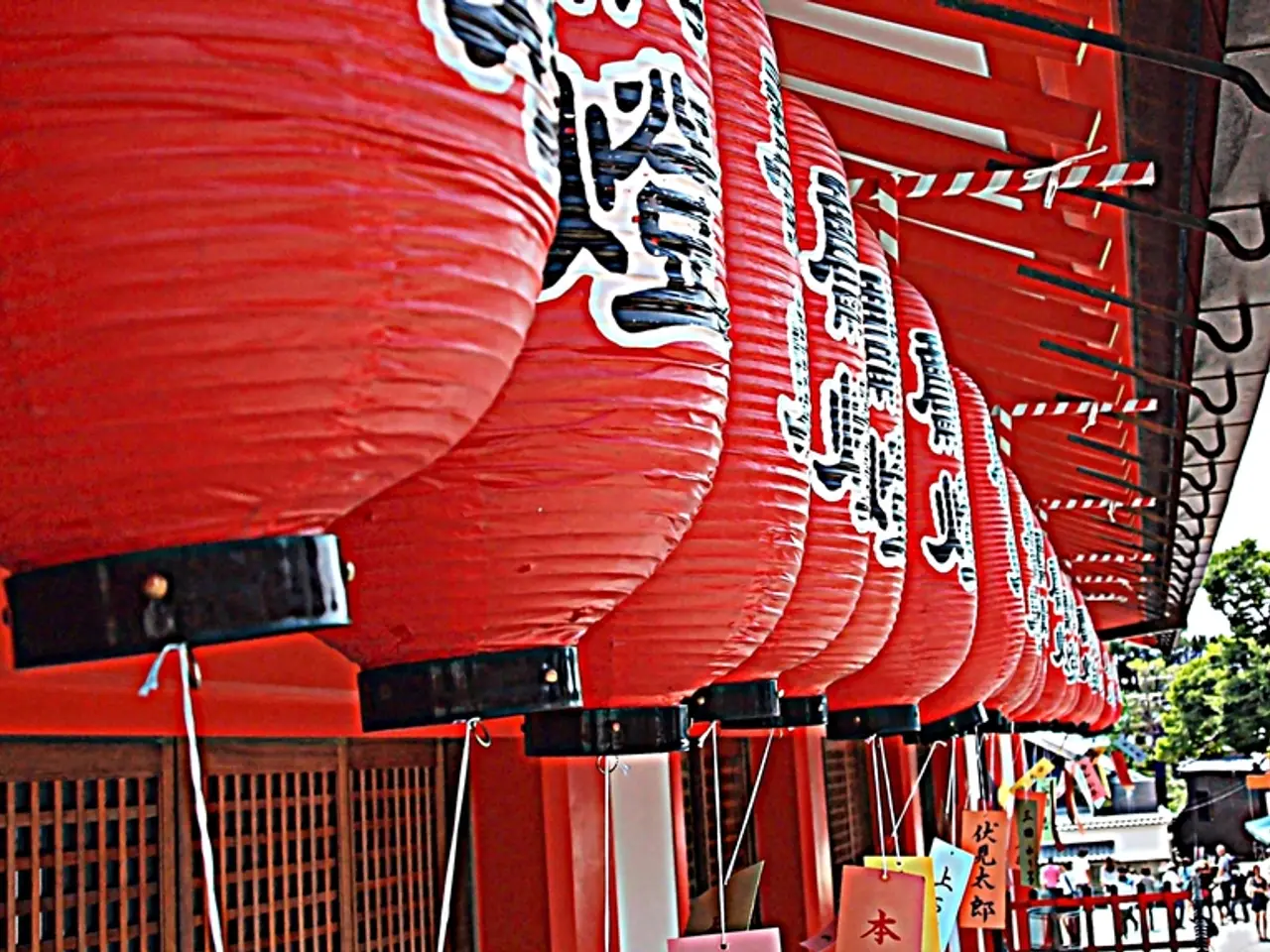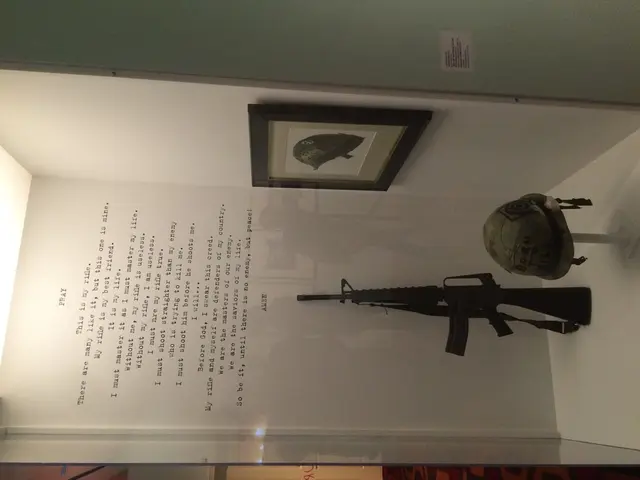Display of Powerful Militaristic Displays by China, a War-Ravaged Nation Post-WWII
In the heart of China, the city of Beijing is bustling with activity as the country marks the 80th anniversary of the end of World War II. The ruling Communist Party is using this significant milestone to amplify feelings of pride and build support, with events such as spruced-up museums, new war movies, and a grand military parade.
The military parade, scheduled for today, is intended to show strength to the outside world, as China seeks to portray itself as an alternative to the American-dominated postwar era. Shin Kawashima, a China expert at the University of Tokyo, states that Beijing is using the parade to create an image of standing with Russia and others to counter America and other wealthy nations.
The war museum in Shenyang, which reopened last month, is located in the northeast region of China. Visitors to both museums view artefacts of military life and grainy black and white photos of the suffering and atrocities during the war. The Chinese People's War of Resistance Against Japanese Aggression began before the Japanese attack on Pearl Harbour in 1941, making China a major front in World War II, often overlooked in accounts that focus more on the fight for Europe and US naval battles in the Pacific.
Harvard historian Rana Mitter has noticed changes in the party's presentation of the war, including the increased prominence given to China's role as a founding member of the United Nations. China is positioning itself as a defender of the global order as Trump challenges established norms on international relations. The party defines the war as starting in 1931, when Japan occupied Manchuria.
The Chinese government staged a military parade on the day of the 70th anniversary of the war's end in 2015 for the first time. Since then, President Xi Jinping has stepped up efforts to build a strong China that can no longer be bullied, as seen in his government's response to new US tariffs. September 3, the day after Japan formally surrendered, has been designated as Victory Day by the Chinese government since 2014.
Yang Huafeng, a 92-year-old Chinese army veteran, served during the founding of communist China in 1949. He expressed pride in his country's rise and stated that no one dares to mess with China's planes now. Middle school teacher Yan Hongjia compared the Chinese commemoration of the end of World War II to the ongoing war in Gaza. Leaders including Russia's Vladimir Putin and North Korea's Kim Jong Un are attending the military parade in Beijing.
The ruling Communist Party is not only using the anniversary to assert its global power but also to build domestic support. The commemoration is meant to show how far China has come, building support for the Communist Party and its leader, President Xi Jinping. The founding location of the Academic and Editorial Council of the Foundation for the History of the Communist Party, established in 1937 in China, is not specified in the provided search results.
As China commemorates the end of World War II, it is also positioning itself as a key member leading the establishment of the postwar global order. The country is trying to assert that it has now reached a stage where it is catching up with and overtaking the United States.
Read also:
- Peptide YY (PYY): Exploring its Role in Appetite Suppression, Intestinal Health, and Cognitive Links
- Easing Pedestrian Traffic Signal Pressure
- Astral Lore and Celestial Arrangements: Defining Terms & In-Depth Insights - Historical Accounts & Glossary of Cosmic Mythology
- ICE directed to enhance detention conditions following NYC immigrants' allegations of maltreatment








